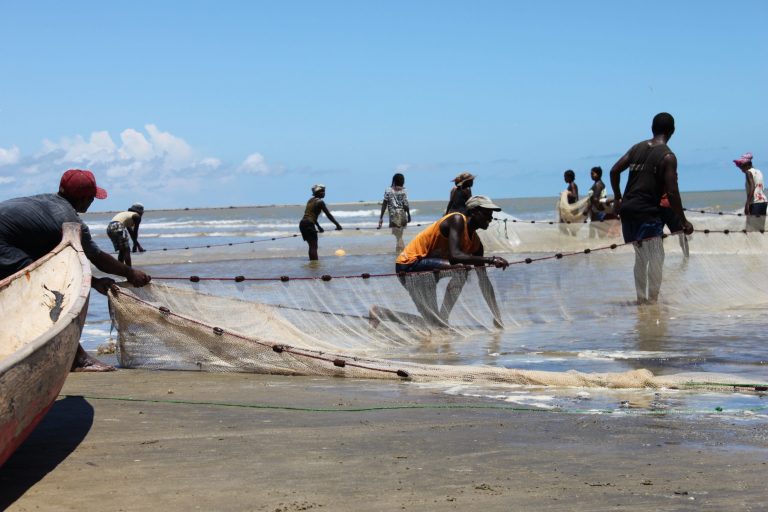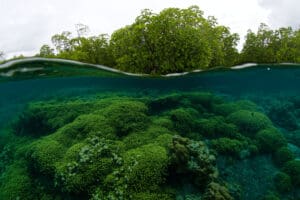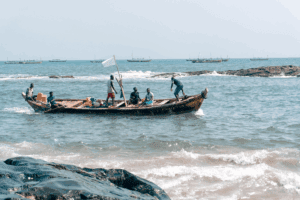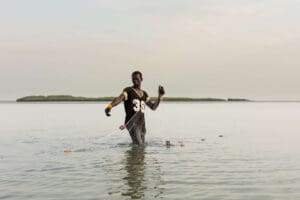Newly published research by Blue Ventures provides the first robust scientific evidence that overfishing is taking place in small-scale fisheries in Madagascar.
The two year study conducted in collaboration with the University of Exeter and Louvain Cooperation, is based on data collected by members of fishing communities from the island’s western Menabe region and published in the journal Frontiers in Marine Science. The research confirms scientifically what local fishermen and women have been seeing over the last few decades: that numbers and sizes of fish are declining markedly.
Overfishing occurs when fish are caught at rates that are too high for species to replenish. Globally, a third of fish stocks that are monitored are known to be overfished. However, given a staggering 99% of fish stocks are not monitored systematically, the true scale of overfishing is likely to be vastly underestimated.
The research, which involved analysing close to two million individual fish, showed that 13 of the 20 most common species caught were overfished. For some species, all individuals were caught before they reached adult maturity, so had not been able to spawn and reproduce. This means that fish are not replacing themselves in the population before they are caught, leading to fewer fish over time. This is the first time that overfishing has been quantified in Madagascar’s small-scale multi-species fishery.
Fisheries are crucial to the survival of Madagascar’s isolated coastal communities providing a vital source of nutrition and income. Over recent decades, these rapidly growing coastal communities have been increasingly connected to commercial markets with a growing demand for seafood both nationally and internationally. The same fishing zones are also exploited by industrial shrimp trawlers with high bycatch and discard rates. All of which has led to increased pressure on coastal fisheries and the overfishing we see in this study.
“Our research demonstrates the critical need for good fisheries management in this region. We have seen that community-led efforts are low cost and effective. But, good management needs good data, and this has been scarce in Madagascar and the broader Indian Ocean region, where monitoring of small-scale catches is limited by the remoteness of many fishing villages. These data can enable communities and policy makers to understand what is happening in these fisheries and make decisions on how to manage them for the long term.” Charlotte Gough, lead author
Until recently, the role of small-scale fisheries in global food security has been largely overlooked, due in part to the lack of robust data. A catch reconstruction conducted by Blue Ventures in partnership with the University of British Columbia in 2012 added more than 200% to officially reported catch data, largely because of underreporting of small-scale fisheries catches. If we overlook the contribution of small-scale fishers we disenfranchise them in decision-making and the management of the fisheries. This study helps fill this data gap in Madagascar, while demonstrating the critical role of local, trained data collectors in building our understanding of small-scale fisheries.
Read the full paper
Explore the results of the study
Download the press release
Related research:
Community conservation means more fish in the sea
Community conservation delivers economic returns
Reconstruction of Marine Fisheries Catches for Madagascar (1950-2008)


















